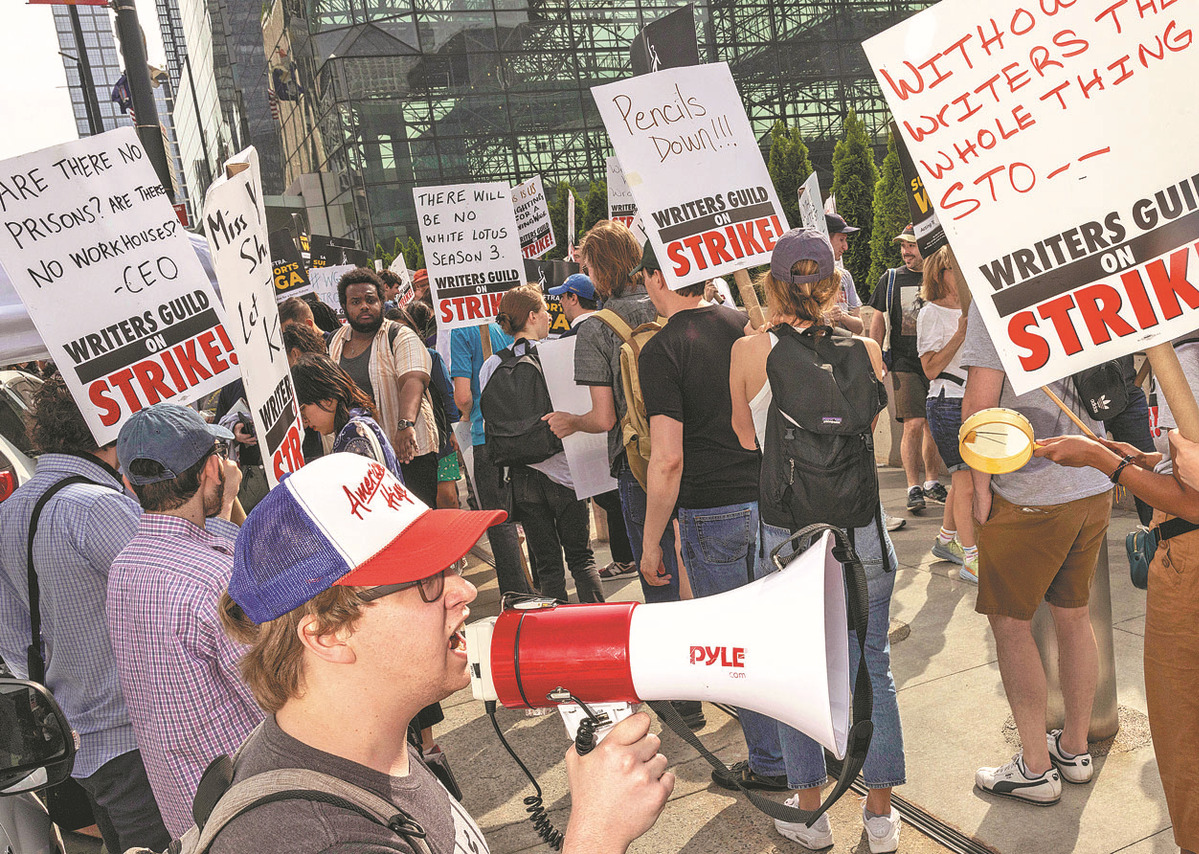With debt parleys at impasse, economy teeters on brink






Democrats and Republicans talk at cross purposes over policy positions
Editor's note: As a critical deadline looms in the United States, Democrats and Republicans are at loggerheads over the debt ceiling. This page looks at where things stand and at the economic consequences.
The US government is stoking global economic fears as it faces another standoff over raising the debt ceiling as a deadline looms, with the country's two main political parties trading accusations as time runs out to avoid a potentially catastrophic US default.
President Joe Biden on Sunday called Republicans' demands for resolving the government's debt ceiling standoff "unacceptable" and said that Republicans must move off their "extreme positions" on the now-stalled talks to raise the $31.4 trillion debt ceiling. Biden planned to call the Speaker of the House of Representatives Kevin McCarthy, from Air Force One on the way back to Washington after a Group of Seven summit in Hiroshima, Japan.
Biden's negotiating team briefed him on the status of talks that broke up on Friday with no signs of progress, according to a White House official.
US Treasury Department has warned that the federal government could be unable to pay all its debts by June 1. That would trigger a default that could cause chaos in financial markets and push up interest rates.
Officials did not meet on Saturday, and they announced no progress from their meetings on Friday or any plan to talk again. Instead, both sides cast the other's proposals as too extreme.
The White House Press Secretary Karine Jean-Pierre said Biden and McCarthy had agreed that any budget agreement would need to be bipartisan and accused Republicans of offering proposals too far to the right to pass Congress.
Late on Saturday afternoon, McCarthy said he did not think talks could advance until Biden was back in the country. He accused Democrats of taking a position that was too extreme toward the left.
The White House suggested earlier on Saturday that Republicans were negotiating in bad faith.
"Stay tuned" summarized the situation — at least stay tuned until Biden returns to Washington on Sunday from the G7 Summit.
Despite the breakdown in talks, Biden told reporters in Japan on Saturday that he was "not at all" worried about the talks. They tend to move in stages, and "I still believe that we'll be able to avoid a default", he said.
Biden had said an agreement needed to be reached this weekend to clear legislation by June 1. The debt ceiling is the legal limit on government borrowing — currently set at $31.4 trillion — which was hit in January.
Unless there is an agreement, failure to raise the debt limit could trigger a first-ever US payments default. Economists have warned that failure to make critical payments such as military salaries, Social Security benefits or interest on previously issued debt could tip the nation into an unprecedented default and affect world economies.
The Washington Post reported on Saturday that Republican negotiators rejected a White House offer to limit spending next year on both the military and a wide range of critical domestic programs, according to three people with knowledge of the matter, who spoke on condition of anonymity.
Republicans are instead pushing for higher defense spending and more significant domestic spending reductions, the people said.
During talks, Biden aides offered what they said was a key concession by proposing that Congress largely hold spending constant on a wide swath of domestic programs, including education, scientific research and housing aid.
Biden's negotiators also proposed essentially holding military spending flat for next year. Biden's budget earlier this year sought big increases to both, funded by higher taxes, and holding their funding constant instead would amount to a cut of as much as 5 percent because of year-over-year inflation.
On Friday McCarthy and negotiators said spending levels were a major sticking point.
On Saturday, in remarks on Fox Business, McCarthy said he had "been very clear about where we need to go. All we're simply saying is, spend less." He added: "I think we could probably find a pretty good agreement to be able to move forward, but the White House will not budge."
McCarthy has pushed for cuts that would cut $100 billion from agency budgets, and spending cap restrictions for a decade.
Democrats want the spending cuts to last for about two years, after which appropriators could more easily increase the budget.
"This was always going to be an issue," G. William Hoagland, a senior vice-president at the Bipartisan Policy Center, a think tank in Washington, told The Washington Post. "Republicans are looking for major savings over the next 10 years, while the administration clearly does not want to lock in 10-year numbers and are looking at a much shorter time frame."














